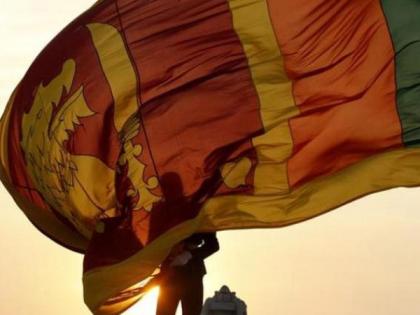After ensnaring Sri Lanka in debt trap, China turns a blind eye as country's economic woes turn critical: Report
By ANI | Published: April 4, 2022 07:24 PM2022-04-04T19:24:46+5:302022-04-04T19:35:02+5:30
As Sri Lanka faces its worst economic crisis in decades and struggles to pay loans, China turns a blind eye after ensnaring the island nation in a debt trap, said a European-based Think Tank.

After ensnaring Sri Lanka in debt trap, China turns a blind eye as country's economic woes turn critical: Report
As Sri Lanka faces its worst economic crisis in decades and struggles to pay loans, China turns a blind eye after ensnaring the island nation in a debt trap, said a European-based Think Tank.
A major problem that Sri Lanka is facing is its huge foreign debt burden, and it owes over USD 5 billion to China alone. Sri Lanka's foreign reserves are shrinking partly because of construction projects built with Chinese loans that are not making money, European Foundation For South Asian Studies (EFSAS) reported.
Its dollar-denominated debt repayments due this year total more than USD 6 billion, including a sovereign bond of USD 1 billion maturing in July. There is growing concern among rating agencies and economists that the country would not be able to pay even this, said the think tank.
According to the think tank, China refused to respond to Sri Lanka's appeal to reschedule its huge debts, and its Ambassador to Sri Lanka said on March 21 that his country was more keen on considering a further USD 1 billion loans and USD 1.5 billion credit line.
As a recent report in the Hong Kong Post put it, the end result of reckless borrowing from China to finance unprofitable infrastructure projects was what had contributed to putting Sri Lanka in this unenviable position to begin with, EFSAS reported.
The report added that "China has shed some crocodile tears over the economy of Sri Lanka getting caught in a quagmire after hobnobbing with the BRI projects of China, record inflation, soaring food prices and the sufferings of the people. The key concern, however, is how such a negative situation would impact the attitude of Colombo towards borrowings from China, and what it would mean for the ultimate relations between China and Sri Lanka", EFSAS further reported.
According to World Bank estimates, over half a million Sri Lankans have already fallen below the poverty line since the pandemic struck. The bank described this as a "huge setback equivalent to five years' worth of progress".
The Sri Lankan government had declared an economic emergency in 2021 in view of rising food prices, a depreciating currency, and rapidly depleting forex reserves. The Sri Lankan economy depends on imports for a wide range of essential items
The shortages of essential items such as food, medicines and fuel is forcing poor Sri Lankans, especially daily wagers, to flee the country.
Sri Lanka has so far relied on loans from countries such as China, India, Japan, and institutions such as the Asian Development Bank and the World Bank, the think tank said.
India, which stands to be directly impacted by the fallout of the economic crisis in Sri Lanka, has made a serious effort to bail out its beleaguered neighbour. Since January, it has helped Sri Lanka with USD 2.4 billion, including a USD 400-million currency swap and a USD 500-million loan deferment, EFSAS reported.
On March 17, Sri Lanka signed a USD 1-billion credit line with India for the procurement of food, medicines, and other essential items. After the agreement to extend the line of credit was inked, the spokesperson of India's Ministry of External Affairs (MEA) said that India had always stood with the people of Sri Lanka and would continue to extend all possible support to the country, the think tank reported.
( With inputs from ANI )
Disclaimer: This post has been auto-published from an agency feed without any modifications to the text and has not been reviewed by an editor
Open in app